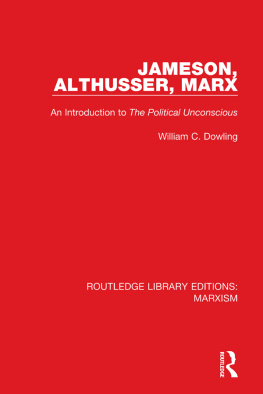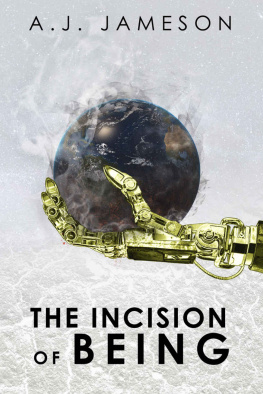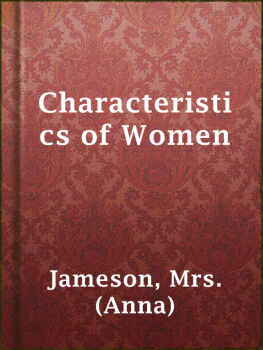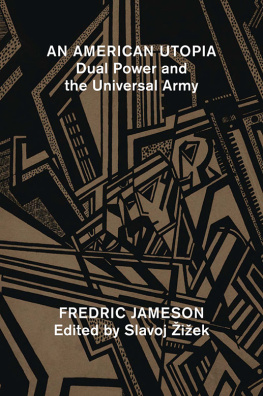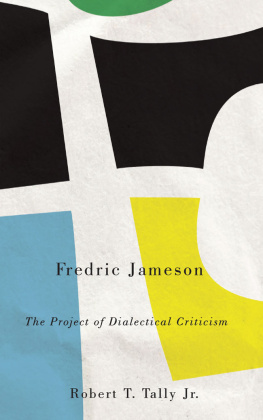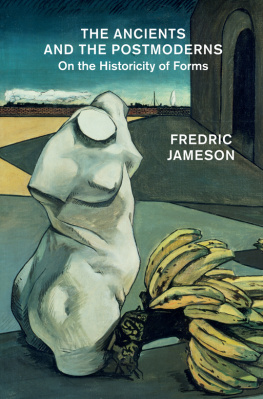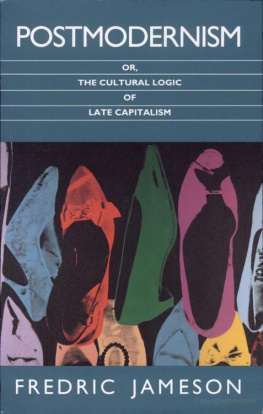THE NEW CANADIAN LIBRARY
General Editor: David Staines
ADVISORY BOARD
Alice Munro
W.H. New
Guy Vanderhaeghe
CONTENTS
Toronto
A Winter Journey
Winter Visits
Sleighing
Visit of Indians
Winter Miseries
Clergy Reserves
The Tragedy of Correggio
German Actresses
Sleigh-journey
Niagara in Winter
Trees in Canada
Society in Toronto
Politics and Parties
Fire at Toronto
A True Story
Goethes Tasso, Iphigenia, and Clavigo
A Soldier of Fortune
Music and Musicians
Constitution of Upper Canada
Prorogation of the House of Assembly
Acts of the Legislature in 1837
On the Female Character
Goethe and Ekermann
Goethes Last Love
Goethes Table Talk
His Ideas on the Position of Women
Criminal Calendar of Toronto
Grillparzers Sappho and Medea
Lake Ontario
Return of Spring
Village of the Credit
Erindale
The Return of Summer
Sternbergs Novels
Detached Thoughts
Mrs. MacMurray
Niagara in Summer
Story of a Slave
The Rapids
Schillers Don Carlos
A Dream
The Niagara District
Buffalo
Canadian Stage Coaches
The Emigrant
Town of Hamilton
Town of Brandtford
Forest Scenery
Roads in Canada
BlandfordA Settlers Family
A Forest Chteau
The Pine Woods
Miss Martineau
Town of London
Women in Canada
The Talbot Country
Story of an Emigrant Boy
Some Account of Colonel Talbot
Journey to Chatham
The Post Office in Canada
The Moravian Delawares
Anecdote of an Indian
Voyage Across Lake St. Clair
The American Emigrants
Detroit
War of Pontiac
Contrast Between the Canadian and the American Shores
Churches at Detroit
Voyage up Lake Huron
The Steam-boat
The River St. Clair
Marriage
Henrys Travels
Island of Mackinaw
Indian Dandies
Indian Lodges
Anecdote
Indian Missionaries
Story of Chusco
Cave of Skulls
Indian Vestal
Indian Amazon
Indian Morals and Manners
The Chippewa Language
Indian Story-tellers
The Story of the Forsaken Brother
the Magician and his Daughters
the Robin
Religious Opinions and Mythology of the Indians
A Talk
Indian Dance
A Voyage in an Open Boat to the Sault Ste. Marie
Night on Lake Huron
Anecdote of Indian Fortitude
Mosquitoes
The Sault Ste Marie
Descent of the Falls
The History of Waub Ojeeg
A Chippewa Allegory
Chippewa Songs
Indian Missions
Chippewa Courtship
Voyage Down Lake Huron
Queen Victoria
Scenes on the Great Manitoolin Island
A Grand Council
A War-dance by Torch Light
Condition of the Indian Women
Canoe Voyage Down Lake Huron
Scenery and Islands of the Northern Shores of Lake Huron
The Voyageurs
Sporting on Lake Huron
Penetanguishene
PREFACE
I n venturing to place before the public these fragments of a journal addressed to a friend, I cannot but feel considerable misgiving as to the reception such a work is likely to meet with, particularly at this time, when the country to which it partly refers is the subject of so much difference of opinion, and so much animosity of feeling. This little book, the mere result of much thoughtful idleness and many an idle thought, has grown up insensibly out of an accidental promise. It never was intended to go before the world in its present crude and desultory form; and I am too sensible of its many deficiencies, not to feel that some explanation is due to that public, which has hitherto regarded my attempts in literature with so much forbearance and kindness.
While in Canada, I was thrown into scenes and regions hitherto undescribed by any traveller, (for the northern shores of Lake Huron are almost new ground,) and into relations with the Indian tribes, such as few European women of refined and civilised habits have ever risked, and none have recorded. My intention was to have given the result of what I had seen, and the reflections and comparisons excited by so much novel experience, in quite a different formand one less obtrusive: but owing to the intervention of various circumstances, and occupation of graver import, I found myself reduced to the alternative of either publishing the book as it now stands, or of suppressing it altogether. Neither the time nor the attention necessary to remodel the whole were within my own power. In preparing these notes for the press, much has been omitted of a personal nature, but far too much of such irrelevant matter still remains; far too much which may expose me to misapprehension, if not even to severe criticism; but now, as heretofore, I throw myself upon the merciful construction of good women, wishing it to be understood that this little book, such as it is, is more particularly addressed to my own sex. I would fain have extracted, altogether, the impertinent leaven of egotism which necessarily mixed itself up with the journal form of writing: but, in making the attempt, the whole work lost its original characterlost its air of reality, lost even its essential truth, and whatever it might possess of the grace of ease and pictorial animation: it became flat, heavy, didactic. It was found that to extract the tone of personal feeling, on which the whole series of action and observation depended, was like drawing the thread out of a string of beadsthe chain of linked ideas and experiences fell to pieces, and became a mere unconnected, incongruous heap. I have been obliged to leave the flimsy thread of sentiment to sustain the facts and observations loosely strung together; feeling strongly to what it may expose me, but having deliberately chosen the alternative, prepared, of course, to endure what I may appear to have defied; though, in truth, defiance and assurance are both far from me.
These notes were written in Upper Canada, but it will be seen that they have little reference to the politics or statistics of that unhappy and mismanaged, but most magnificent country. Subsequently I made a short tour through Lower Canada, just before the breaking out of the late revolt. Sir John Colborne, whose mind appeared to me cast in the antique mould of chivalrous honour, and whom I never heard mentioned in either province but with respect and veneration, was then occupied in preparing against the exigency which he afterwards met so effectively. I saw of course something of the state of feeling on both sides, but not enough to venture a word on the subject. Upper Canada appeared to me loyal in spirit, but resentful and repining under the sense of injury, and suffering from the total absence of all sympathy on the part of the English government with the condition, the wants, the feelings, the capabilities of the people and country. I do not mean to say that this want of sympathy now exists to the same extent as formerly; it has been abruptly and painfully awakened, but it has too long existed. In climate, in soil, in natural productions of every kind, the upper province appeared to me superior to the lower province, and well calculated to become the inexhaustible timber-yard and granary of the mother country. The want of a sea-port, the want of security of property, the general mismanagement of the government landsthese seemed to me the most prominent causes of the physical depression of this splendid country, while the poverty and deficient education of the people, and a plentiful lack of public spirit in those who were not of the people, seemed sufficiently to account for the moral depression everywhere visible. Add a system of mistakes and mal-administration, not chargeable to any one individual, or any one measure, but to the whole tendency of our Colonial government; the perpetual change of officials, and change of measures; the fluctuation of principles destroying all public confidence, and a degree of ignorance relative to the country itself, not credible except to those who may have visited it; add these three things together, the want of knowledge, the want of judgment, the want of sympathy, on the part of the government, how can we be surprised at the strangely anomalous condition of the governed? that of a land absolutely teeming with the richest capabilities, yet poor in population, in wealth, and in energy! But I feel I am getting beyond my depth. Let us hope that the reign of our young Queen will not begin, like that of Maria Theresa, with the loss of one of her fairest provinces; and that hereafter she may look upon the map of her dominions without the indignant blushes and tears with which Maria Theresa, to the last moment of her life, contemplated the map of her dismembered empire, and regretted her lost Silesia.
Next page

